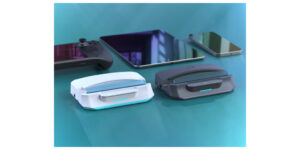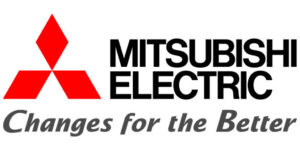European Commission Grants Conditional Approval of CARVYKTI® (Ciltacabtagene Autoleucel), Janssen’s First Cell Therapy, for the Treatment of Patients with Relapsed and Refractory Multiple Myeloma

In the pivotal clinical study CARTITUDE-1, 98 percent of patients with relapsed or refractory multiple myeloma responded to a one-time treatment with ciltacabtagene autoleucel and 80 percent of patients who responded experienced a stringent complete response1
BEERSE, Belgium–(BUSINESS WIRE)–The Janssen Pharmaceutical Companies of Johnson & Johnson announced today that the European Commission (EC) granted conditional marketing authorisation of CARVYKTI® (ciltacabtagene autoleucel; cilta-cel) for the treatment of adults with relapsed and refractory multiple myeloma (RRMM) who have received at least three prior therapies, including an immunomodulatory agent (IMiD), a proteasome inhibitor (PI) and an anti-CD38 antibody, and have demonstrated disease progression on the last therapy. In December 2017, Janssen Biotech, Inc. (Janssen) entered into an exclusive worldwide license and collaboration agreement with Legend Biotech USA, Inc. to develop and commercialise cilta-cel.2
“Patients who have relapsed, or for whom treatment regimens have stopped working after experiencing the three major drug classes, typically face poor survival. Despite recent innovation, new therapeutic approaches are still needed,” said Maria-Victoria Mateos, M.D., Ph.D., Consultant Physician in Haematology, University Hospital of Salamanca.* “The CARTITUDE-1 data, on which the EC approval is based, show that a single infusion of cilta-cel resulted in durable responses in a heavily pre-treated patient population. These results support the potential of cilta-cel in offering patients and physicians a valuable new treatment option.”
Cilta-cel is a chimeric antigen receptor T-cell (CAR-T) therapy featuring two B-cell maturation antigen (BCMA)-targeting single domain antibodies.3 CAR-T therapy is specifically developed for each individual patient, and it is administered as a single infusion.3,4
“At Janssen, we are building on nearly 20 years of commitment towards changing what a multiple myeloma diagnosis means for patients and are intent on addressing the high unmet needs that still remain,” said Edmond Chan, MBChB M.D. (Res), EMEA Therapeutic Area Lead Haematology, Janssen-Cilag Limited. “With today’s approval of cilta-cel in Europe, we are pleased to be delivering a new approach to the way in which healthcare professionals can tackle, and hopefully one day overcome, this complex disease.”
Conditional marketing authorisation (CMA) is the approval of a medicine that addresses unmet medical needs of patients based on less comprehensive data than normally required, where the benefit of immediate availability of the medicine outweighs the risk, and the applicant is able to provide comprehensive clinical data in the future.5 This CMA was supported by the pivotal CARTITUDE-1 study, including patients who had received a median of six prior treatment regimens (range, 3–18), and had previously received an IMiD, PI, and an anti-CD38 monoclonal antibody.1 Findings presented at the American Society of Clinical Oncology (ASCO) 2021 Annual Meeting showed that at a median duration of 18 months follow-up (range, 1.5–30.5), a one-time treatment with cilta-cel resulted in deep and durable responses, with 98 percent (95 percent Confidence Interval [CI], 92.7–99.7) of patients with RRMM responding to therapy (98 percent overall response rate [ORR] (n=97)).1,6 Notably, 80 percent of patients achieved a stringent complete response (sCR), a measure in which a physician is unable to observe any signs or symptoms of disease via imaging or other tests after treatment.1
The safety of cilta-cel was evaluated in 179 adult patients across two open-label clinical trials (MMY2001 and MMY2003). The most common adverse reactions (≥20 percent) were neutropenia (91 percent), cytokine release syndrome (CRS) (88 percent), pyrexia (88 percent), thrombocytopenia (73 percent), anaemia (72 percent), leukopenia (54 percent), lymphopenia (45 percent), musculoskeletal pain (43 percent), hypotension (41 percent), fatigue (40 percent), transaminase elevation (37 percent), upper respiratory tract infection (32 percent), diarrhoea (28 percent), hypocalcaemia (27 percent), hypophosphataemia (26 percent), nausea (26 percent), headache (25 percent), cough (25 percent), tachycardia (23 percent), chills (23 percent), encephalopathy (22 percent), decreased appetite (22 percent), oedema (22 percent), and hypokalaemia (20 percent).6
“The approval of Janssen’s first cell therapy is testament to our ongoing commitment to advance science and transform outcomes for those living with multiple myeloma,” said Sen Zhuang, M.D., Ph.D., Vice President, Oncology Clinical Research, Janssen Research & Development, LLC. “We are deeply thankful to the patients, their families, the nurses, and the teams of researchers and study centres who have participated in the clinical study of cilta-cel and made today’s approval possible.”
The longer-term efficacy and safety profile of cilta-cel is being assessed in the ongoing CARTITUDE-1 study. Two-year follow-up results presented most recently at the American Society of Hematology (ASH) 2021 Annual Meeting showed that 98 percent of patients treated with cilta-cel for RRMM responded to therapy (98 percent ORR [n=97]), and the majority of patients achieved sustained depth of response, with 83 percent achieving a sCR at the 22-month follow-up.3
As a highly personalised medicine, where a patient’s own T-cells are reprogrammed to target and kill cancer cells,4 administration of CAR-T therapy requires extensive training, preparation, and certification to ensure the highest quality product and experience for patients. Through a phased approach, Janssen will work diligently to activate a limited network of certified treatment centres and will aim to increase availability of cilta-cel across Europe, in an effort to provide oncologists and patients with treatment in a reliable manner.
#ENDS#
About Ciltacabtagene Autoleucel (cilta-cel)
Cilta-cel is a BCMA-directed, genetically modified autologous T-cell immunotherapy, which involves reprogramming a patient’s own T-cells with a transgene encoding a chimeric antigen receptor (CAR) that identifies and eliminates cells that express BCMA.1,3 BCMA is primarily expressed on the surface of malignant multiple myeloma B-lineage cells, as well as late-stage B-cells and plasma cells.7,8 The cilta-cel CAR protein features two BCMA-targeting single domain antibodies designed to confer high avidity against human BCMA.1 Upon binding to BCMA-expressing cells, the CAR promotes T-cell activation, expansion, and elimination of target cells.9
In December 2017, Janssen Biotech, Inc. (Janssen) entered into an exclusive worldwide license and collaboration agreement with Legend Biotech USA, Inc. to develop and commercialise cilta-cel.2
In addition to United States (U.S.) Breakthrough Therapy Designation granted in December 2019,10 cilta-cel received a PRIority MEdicines (PRiME) designation from the EC in April 2019,11 and a Breakthrough Therapy Designation in China in August 2020.12 Janssen also received Orphan Drug Designation for cilta-cel from the EC in February 2020 and from the Pharmaceuticals and Medicinal Devices Agency (PMDA) in Japan in June 2020.13 In May 2022, the Committee for Orphan Medicinal Products recommended by consensus that the orphan designation for cilta-cel be maintained, on the basis of clinical data demonstrating improved and sustained complete response rates following treatment.14 Cilta-cel received U.S. Food and Drug Administration (FDA) approval in February 2022.15
About CARTITUDE-1
CARTITUDE-1 (NCT03548207)16 is an ongoing Phase 1b/2, open-label, multi-centre study evaluating cilta-cel for the treatment of patients with RRMM, who have previously received a PI, an IMiD, and an anti-CD38 antibody, and who demonstrated disease progression on or after the last regimen. All patients in the study had received a median of six prior treatment regimens (range, 3-18).1 Of the 97 patients enrolled in the trial, 99 percent were refractory to the last line of treatment and 88 percent were triple-class refractory, meaning their cancer did not respond, or no longer responds, to an IMiD, a PI and an anti-CD38 antibody.1
About Multiple Myeloma
Multiple myeloma is an incurable blood cancer that affects a type of white blood cell called plasma cells, which are found in the bone marrow.17 In multiple myeloma, cancerous plasma cells change and grow out of control.7 In Europe, more than 50,900 people were diagnosed with multiple myeloma in 2020, and more than 32,500 patients died.18 While some patients with multiple myeloma initially have no symptoms, most patients are diagnosed due to symptoms, which can include bone fracture or pain, low red blood cell counts, tiredness, high calcium levels or kidney failure.19
About the Janssen Pharmaceutical Companies of Johnson & Johnson
At Janssen, we’re creating a future where disease is a thing of the past. We’re the Pharmaceutical Companies of Johnson & Johnson, working tirelessly to make that future a reality for patients everywhere by fighting sickness with science, improving access with ingenuity, and healing hopelessness with heart. We focus on areas of medicine where we can make the biggest difference: Cardiovascular, Metabolism & Retina; Immunology; Infectious Diseases & Vaccines; Neuroscience; Oncology; and Pulmonary Hypertension.
Learn more at www.janssen.com/emea. Follow us at www.twitter.com/janssenEMEA for our latest news. Janssen Pharmaceutica NV, Janssen Biotech, Inc., Janssen-Cilag Limited and Janssen Research & Development, LLC are part of the Janssen Pharmaceutical Companies of Johnson & Johnson.
# # #
*Maria-Victoria Mateos, MD, PhD, has been a paid consultant to Janssen; she has not been paid for contributing to this press release.
Cautions Concerning Forward-Looking Statements
This press release contains “forward-looking statements” as defined in the Private Securities Litigation Reform Act of 1995 regarding ciltacabtagene autoleucel (cilta-cel). The reader is cautioned not to rely on these forward-looking statements. These statements are based on current expectations of future events. If underlying assumptions prove inaccurate or known or unknown risks or uncertainties materialise, actual results could vary materially from the expectations and projections of Janssen Pharmaceutica NV, Janssen Biotech, Inc., Janssen-Cilag Limited and Janssen Research & Development, LLC, and any of the other Janssen Pharmaceutical Companies, and/or Johnson & Johnson. Risks and uncertainties include, but are not limited to: challenges and uncertainties inherent in product research and development, including the uncertainty of clinical success and of obtaining regulatory approvals; uncertainty of commercial success; manufacturing difficulties and delays; competition, including technological advances, new products and patents attained by competitors; challenges to patents; product efficacy or safety concerns resulting in product recalls or regulatory action; changes in behaviour and spending patterns of purchasers of health care products and services; changes to applicable laws and regulations, including global health care reforms; and trends toward health care cost containment. A further list and descriptions of these risks, uncertainties and other factors can be found in Johnson & Johnson’s Annual Report on Form 10-K for the fiscal year ended January 2, 2022, including in the sections captioned “Cautionary Note Regarding Forward-Looking Statements” and “Item 1A. Risk Factors,” and in Johnson & Johnson’s subsequent Quarterly Reports on Form 10-Q and other filings with the Securities and Exchange Commission. Copies of these filings are available online at www.sec.gov, www.jnj.com or on request from Johnson & Johnson. None of the Janssen Pharmaceutical Companies nor Johnson & Johnson undertakes to update any forward-looking statement as a result of new information or future events or developments.
References
1 Usmani, S. Ciltacabtagene autoleucel, a B-cell maturation antigen (BCMA)-directed chimeric antigen receptor T-cell (CAR-T) therapy, in relapsed/refractory multiple myeloma (R/R MM): Updated results from CARTITUDE-1. Abstract #8005 [Oral]. Presented at the 2021 American Society of Clinical Oncology (ASCO) Annual Meeting.
2 JnJ.com Janssen Enters Worldwide Collaboration and License Agreement with Chinese Company Legend Biotech to Develop Investigational CAR-T Anti-Cancer Therapy. Available at: https://www.jnj.com/media-center/press-releases/janssen-enters-worldwide-collaboration-and-license-agreement-with-chinese-company-legend-biotech-to-develop-investigational-car-t-anti-cancer-therapy. Last accessed: May 2022.
3 Martin, T. Updated Results From CARTITUDE-1: Phase 1b/2 Study of Ciltacabtagene Autoleucel, a B-cell Maturation Antigen–Directed Chimeric Antigen Receptor T Cell Therapy, in Patients With Relapsed/Refractory Multiple Myeloma. Abstract #549 [Oral]. Presented at the 2021 American Society of Hematology (ASH) Annual Meeting & Exposition Annual Meeting.
4 NHS. CAR-T Therapy. Available at: https://www.england.nhs.uk/cancer/cdf/car-t-therapy/. Last accessed: May 2022.
5 Conditional marketing authorisation. The European Medicines Agency. Available at:
https://www.ema.europa.eu/en/human-regulatory/marketing-authorisation/conditional-marketing-authorisation. Last accessed: May 2022.
6 European Medicines Agency. CARVYKTI (Ciltacabtagene Autoleucel) Summary of Product Characteristics. May 2022.
7 Frerichs KA, et al. Preclinical Activity of JNJ-7957, a Novel BCMA×CD3 Bispecific Antibody for the Treatment of Multiple Myeloma, Is Potentiated by Daratumumab. Clin Cancer Res. 2020 May 1;26(9):2203-2215.
8 Cho SF, et al. Targeting B Cell Maturation Antigen (BCMA) in Multiple Myeloma: Potential Uses of BCMA-Based Immunotherapy. Front Immunol. 2018 Aug 10;9:1821.
9 Tai YT, Anderson KC. Targeting B-cell maturation antigen in multiple myeloma. Immunotherapy. 2015;7(11):1187-1199.
10 JnJ.com Janssen Announces BCMA CAR-T Therapy JNJ-4528 Granted U.S. FDA Breakthrough Therapy Designation for the Treatment of Relapsed or Refractory Multiple Myeloma Available at: https://www.jnj.com/janssen-announces-bcma-car-t-therapy-jnj-4528-granted-u-s-fda-breakthrough-therapy-designation-for-the-treatment-of-relapsed-or-refractory-multiple-myeloma Last accessed: May 2022.
11 JnJ.com Janssen Announces Investigational CAR-T Therapy JNJ-68284528 Granted PRIME Designation by the European Medicines Agency Available at: https://www.jnj.com/janssen-announces-investigational-car-t-therapy-jnj-68284528-granted-prime-designation-by-the-european-medicines-agency Last accessed: May 2022.
12 Legend Biotech Business Wire. The China Center for Drug Evaluation, National Medical Products Administration Has Recommended Breakthrough Therapy Designation for ciltacabtagene autoleucel (cilta-cel, LCAR-B38M CAR-T Cells), an Investigational BCMA CAR-T Cell Therapy. Available at: https://www.businesswire.com/news/home/20200805006079/en/The-China-Center-for-Drug-Evaluation-National-Medical-Products-Administration-Has-Recommended-Breakthrough-Therapy-Designation-for-ciltacabtagene-autoleucel-cilta-cel-LCAR-B38M-CAR-T-Cells-an-Investigational-BCMA-CAR-T-Cell-Therapy. Last accessed: May 2022.
13 European Medicines Agency. Public summary of opinion on orphan designation. Autologous human T cells genetically modified ex-vivo with a lentiviral vector encoding a chimeric antigen receptor for B-cell maturation antigen for the treatment of multiple myeloma. Available at: https://www.ema.europa.eu/en/documents/orphan-designation/eu/3/20/2252-public-summary-positive-opinion-orphan-designation-autologous-human-t-cells-genetically_en.pdf. Last accessed: May 2022.
14 European Commission. Community Register of Orphan Medicinal Products. Available at: https://ec.europa.eu/health/documents/community-register/html/o2252.htm. Last accessed: May 2022.
15 JnJ.com U.S. FDA Approves CARVYKTI™ (ciltacabtagene autoleucel), Janssen’s First Cell Therapy, a BCMA-Directed CAR-T Immunotherapy for the Treatment of Patients with Relapsed or Refractory Multiple Myeloma. Available at: https://www.jnj.com/u-s-fda-approves-carvykti-ciltacabtagene-autoleucel-janssens-first-cell-therapy-a-bcma-directed-car-t-immunotherapy-for-the-treatment-of-patients-with-relapsed-or-refractory-multiple-myeloma. Last accessed: May 2022.
16 ClinicalTrials.gov. A Study of JNJ-68284528, a Chimeric Antigen Receptor T Cell (CAR-T) Therapy Directed Against B-Cell Maturation Antigen (BCMA) in Participants With Relapsed or Refractory Multiple Myeloma (CARTITUDE-1). Available at: https://clinicaltrials.gov/ct2/show/NCT03548207. Last accessed May 2021.
17 American Society of Clinical Oncology. Multiple myeloma: introduction. Available at: https://www.cancer.net/cancer-types/multiple-myeloma/introduction. Last accessed: May 2022.
18 GLOBOCAN 2020. Cancer Today Population Factsheets: Europe Region. Available at: https://gco.iarc.fr/today/data/factsheets/populations/908-europe-fact-sheets.pdf. Last accessed: May 2022.
19 American Cancer Society. Multiple myeloma: early detection, diagnosis and staging. Available at: https://www.cancer.org/content/dam/CRC/PDF/Public/8740.00.pdf. Last accessed: May 2022.
CP-317378
May 2022
Contacts
Media Enquiries:Jenni Mildon
Mobile: +44 7920 418 552
Email: jmildon@its.jnj.com
Investor Relations:Raychel Kruper
Mobile: +1 732 524 6164
Email: rkruper@its.jnj.com








